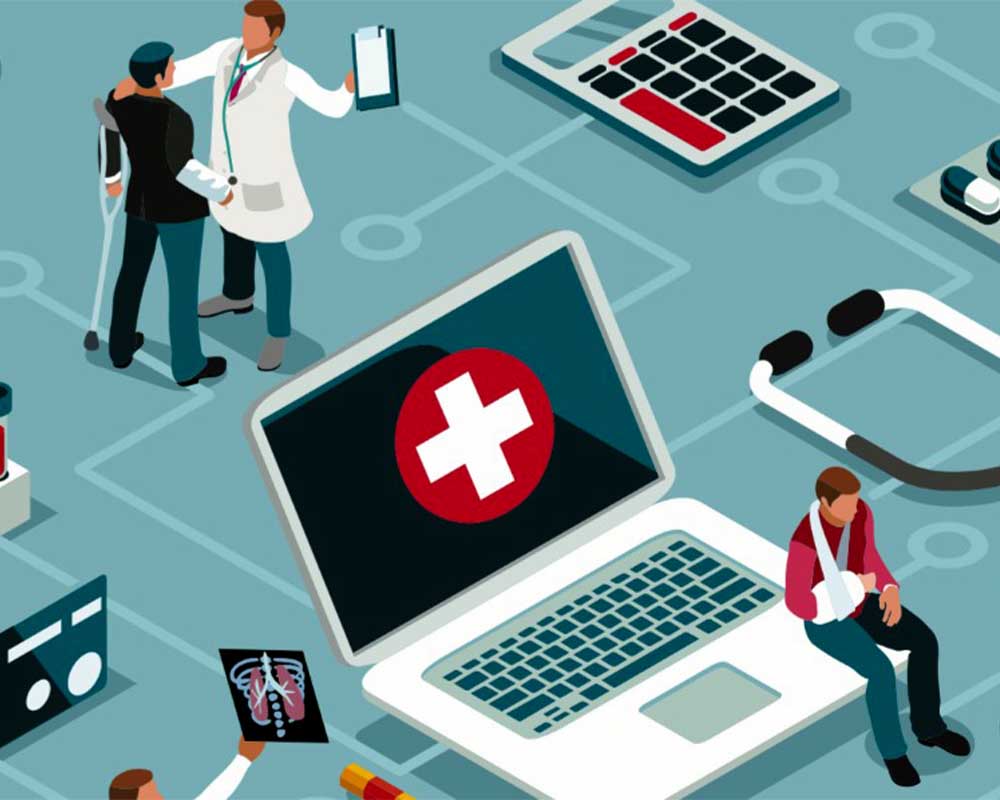The Critical Role of DIASYS as Dialysis EMR
The Critical Role of DIASYS: Transforming Patient Care in Modern Nephrology with a Specialized EMR
Modern nephrology is a uniquely complex and data-intensive field of medicine. Managing patients with chronic kidney disease (CKD), end-stage kidney disease (ESKD), and those undergoing dialysis requires constant monitoring, intricate medication management, and seamless coordination among a diverse care team1. In this demanding environment, generic Electronic Medical Record (EMR) systems often fall short. A specialized nephrology EMR like DIASYS is no longer a luxury but a critical tool for enhancing clinical productivity, improving patient outcomes, and future-proofing practice operations2.
This article explores the indispensable role of a nephrology-specific EMR, highlighting how the DIASYS platform empowers clinicians to overcome the daily challenges of kidney care and deliver a higher standard of treatment.

Why Standard EMRs Don't Work for Nephrology
Dialysis centers and nephrology practices operate differently than typical medical offices. Their workflows are built around regular, life-sustaining treatments, continuous lab result monitoring, and managing complex patient data streams3. A standard EMR system often lacks the specialized features needed to manage these processes effectively3.
Key limitations include:
• Lack of Tailored Templates: Generic EMRs do not have built-in templates designed for hemodialysis or peritoneal dialysis, making documentation cumbersome and inefficient3.
• Poor Data Integration: They struggle to effectively track and trend nephrology-specific lab values like creatinine, BUN, and potassium over time34.
• Inefficient Workflow Support: Standard systems are not optimized for the unique scheduling, resource management, and administrative tasks of a dialysis clinic, which can lead to delays and increased staff burden5.

DIASYS as a Nephrology-EMR: A Purpose-Built Solution
A specialized EMR for nephrologists is a digital system tailored specifically to the needs of kidney specialists4. DIASYS serves as a comprehensive operational system designed to manage the full spectrum of dialysis services and nephrology care. It provides a centralized platform that consolidates all clinical and administrative data, allowing for streamlined workflows, improved data accuracy, and better-informed clinical decisions25.
By integrating features specific to renal health, DIASYS addresses the core challenges faced by nephrology practices, from initial patient assessment to long-term chronic care management26.
Core Features of DIASYS and Their Impact on Clinical Practice
The strength of a specialized EMR lies in its purpose-built features that directly enhance patient care and clinic efficiency.
• Centralized and Comprehensive Patient Records
A nephrology-specific EMR consolidates a patient's entire medical journey into a single, accessible record. This includes medical history, lab results, dialysis treatment plans, medication lists, and radiological images24. With DIASYS, clinicians gain a real-time, 360-degree view of the patient, enabling quicker decision-making and reducing the risk of medical errors associated with fragmented paper records78.
• Streamlined Dialysis and Clinic Workflows
DIASYS is engineered to optimize the day-to-day operations of a busy nephrology clinic. It offers features like automated appointment scheduling, which helps reduce patient no-show rates and improves patient flow28. The system includes nephrology-specific templates that simplify the documentation process for conditions like CKD and dialysis management, freeing up valuable time for healthcare providers to focus on direct patient interactions rather than administrative burdens64.
• Advanced Data Analytics for Data-Driven Care

Effective management of kidney disease relies on analyzing trends in patient health and treatment efficacy. DIASYS functions as an analytical tool, allowing clinics to track key performance indicators, monitor patient progress, and assess the effectiveness of different dialysis protocols8. This data-driven approach is crucial for quality improvement initiatives and helps clinicians identify high-risk patients who may require more immediate intervention9.
• Enhanced Medication and Inventory Management

Patients with kidney disease are often on complex medication regimens that require careful monitoring and dose adjustments based on renal function7. A specialized EMR assists nephrologists in prescribing and managing these medications, reducing the risk of errors4. Furthermore, integrated inventory management tools help clinics track medical supplies and equipment, minimizing waste and ensuring that essential resources are always available5.
Improving Patient Safety and Outcomes with a Specialized EMR

The integration of a robust EMR like DIASYS has a profound and immediate impact on patient safety and the quality of care1.
• Reduced Medical Errors: By centralizing patient information and automating tasks, the system lowers the chance of misdiagnosis, incorrect medication dosing, and treatment missteps4.
• Enhanced Team Collaboration: A unified platform ensures that all members of the care team—from nephrologists and nurses to technicians and dietitians—are working with the same up-to-date information. This seamless communication is vital for coordinating care and preventing conflicting treatment plans8.
• Proactive and Personalized Care: With access to comprehensive data and analytics, providers can move from reactive to proactive care. They can identify subtle patterns or deteriorating trends early, allowing for timely interventions that can improve long-term patient outcomes6.
The Future of Nephrology: AI and Telemedicine Integration

The digital transformation of healthcare is accelerating, with technologies like Artificial Intelligence (AI) and telemedicine poised to revolutionize nephrology1011. A sophisticated EMR like DIASYS serves as the foundational platform for these advancements. Future integrations could use AI to predict acute kidney injury (AKI) or optimize dialysis treatments based on real-time data12. It can also facilitate the growth of tele-nephrology, providing critical care to patients in underserved and rural areas11.
By adopting a forward-thinking EMR system, nephrology practices can prepare for the next wave of innovation in healthcare, ensuring they remain at the cutting edge of patient care12.
What is DIASYS and how does it support nephrology care?
DIASYS is a specialized Electronic Medical Record (EMR) system built specifically for the needs of nephrology and dialysis centers. It supports patient care by centralizing all clinical data—such as lab results, treatment history, and medications—into a single platform, streamlining complex workflows unique to kidney care.
How does DIASYS improve patient safety in dialysis clinics?
What are the key features of DIASYS EMR for nephrologists?
Can DIASYS integrate with dialysis machines for real-time data?
How does DIASYS help in managing medication for kidney patients?
The system is designed to handle the complex medication regimens of renal patients. It helps clinicians track prescriptions, adjust dosages based on changing kidney function, and monitor for potential drug interactions, which is crucial for this patient population.
What benefits does DIASYS provide for clinic workflow efficiency?
Is DIASYS suitable for both hemodialysis and peritoneal dialysis management?
How does DIASYS support data-driven decision-making in nephrology?
What role does DIASYS play in regulatory compliance for dialysis centers?
How can DIASYS prepare nephrology clinics for future AI and telemedicine?




